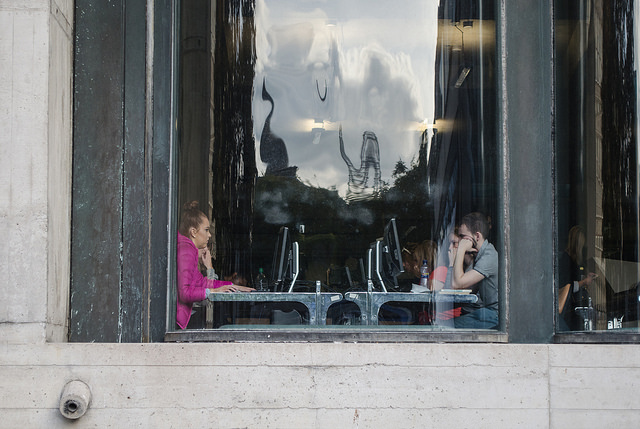Trinity’s library strategy is set to enter a new phase, with College calling for access to online government archives and refurbishments to the library space.
New e-journal terminals are the latest additions to the library, with terminals set to be established in the Berkeley Library this term. The College is also lobbying for more access to online government materials, in a bid to expand its archive.
Helen Shenton, Librarian and College Archivist, along with various Trinity professors, is “actively lobbying” for greater submission of materials to the online database by government departments and bodies, noting the importance of “capturing” materials on a large-scale basis before they are no longer accessible.
The library will also conduct a review in 2018 for the Department of Culture, Media and Sport, examining the legal deposit legislation, how the library has implemented it and give recommendations to the government “for where we would like more access” to materials.
After a spate of refurbishments to Iveagh Hall, the library is now turning its attention to the digital resources available to students and staff. After the introduction of dedicated terminals for accessing e-books and e-journals in the Lecky, Hamilton and John Stearne libraries, similar terminals are to be introduced in the Berkeley to increase the availability of online materials for students.
Speaking to The University Times, Shenton said that the new terminals will provide greater access to e-content for students, as well as making the process of accessing e-publications more user-friendly.
“It’s about making as much information as possible accessible to as many people as possible in many different ways”, Shenton said. The terminals are one part of the College’s long-term strategy for modernising Trinity’s libraries and will provide students with on-campus access to a collection of up to 178,000 e-books and 10 million websites.
The strategy is a five-year project, running from 2015 to 2020. Shenton said that despite the five-year time frame put on the project, “it’ll actually take 10 to 15 years” as it is “so ambitious”.
The library is also piloting what they call a “patron-driven acquisition project”, which will allow staff and students to submit suggestions for titles the library should purchase. The project, the library hopes, will minimise financial costs but also help build a collection that library-goers will be able to use.
Shenton noted that she would also like to see an increase in the materials shared digitally by government departments in Ireland. As it stands, UK legislation allows for UK Legal Deposit libraries, which includes Trinity, to collect electronic publications. This allows libraries to create an archive of UK websites, among other things.
Ireland, however, doesn’t have legislation that allows this. “If you were studying what was happening in the downturn”, Shenton said, “whether you were coming at it from an economics point of view, a history point of view, sociology, law – you’d want to have a look at NAMA. Where are all their reports?”
“There is a black hole in the Irish memory. In the UK and in the vast majority of European countries there is legislation that says you have to capture the output of that country’s domain. We don’t have that. It’s quite shocking. We feel so strongly about it that we’ve put our money where our mouth is”, she said
Following on from the renovation of Iveagh Hall over the summer, Shenton also confirmed that the Lecky Library would be refurbished. However, this will be under a broader €4 million refurbishment of the Arts Block, set to take place in the coming years.
Niamh Egleston contributed reporting to this piece.







